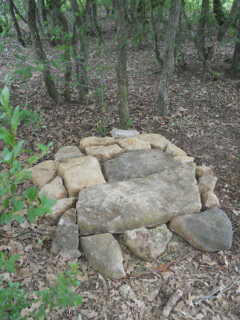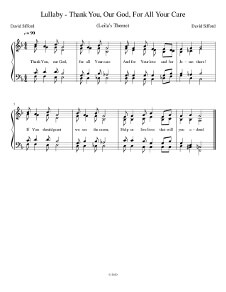The first device that Satan hath to draw souls from holy duties, and to keep them off from religious services, is,
Device (1). By presenting the world in such a dress, and in such a garb to the soul, as to ensnare the soul, and to win upon the affections of the soul.
He represents the world to them in its beauty and bravery [finery], which proves a bewitching sight to a world of men.
Now the remedies against this device of Satan are these,
Remedy (1). The first remedy against this device of Satan is, To dwell upon the impotency and weakness of all these things here below.
Remedy (2). The second remedy against this device of Satan is, To dwell upon the vanity of them as well as upon the impotency of all worldly good.
Remedy (3). The third remedy against the device of Satan is, To dwell much upon the uncertainty, the mutability, and inconstancy of all things under the sun.
Man himself is but the dream of a dream, but the generation of a fancy, but an empty vanity, but the curious picture of nothing, a poor, feeble, dying flash. All temporals are as transitory as a hasty headlong current, a shadow, a ship, a bird, an arrow, a post that passes by.
‘Why shouldst thou set thine eyes upon that which is not?’ said Solomon, Prov. xxiii. 5. And said the apostle, ‘The fashion of this world passeth away,’ 1 1 Cor. vii. 31.
(Footnote: 1 Cor. vii. 31 intimates, that there is nothing of any firmness, or solid consistence, in the creature.)
Heaven only hath a foundation, earth hath none, ‘but is hanged upon nothing,’ as Job speaks, xxvi. 7. The apostle willed Timothy to ‘charge rich men that they be not high-minded, nor put their trust in uncertain riches,’ 1 Tim. vi. 17. 2
(Footnote: Riches were never true to any that trusted to them; they have deceived men, as Job’s brook did the poor travelers in the summer season.)
They are like bad servants, whose shoes are made of running leather, and will never tarry long with one master.
(Footnote: A phrase meaning, he is given to rambling about.)
As a bird hops from tree to tree, so do the honours and riches of this world from man to man, Let Job and Nebuchadnezzar testify this truth, who fell from great wealth to great want [lack]. No man can promise himself to be wealthy till night; one storm at sea, one coal of fire, one false friend, one unadvised word, one false witness, may make you a beggar and a prisoner all at once. All the riches and glory of this world is but as smoke and chaff that vanishes; ‘Asa dream and vision in the night, that tarrieth not’, Job xx. 8. ‘As if a hungry man dreameth, and thinketh that he eateth, and when he awaketh his soul is empty; and like a thirsty man which thinketh he drinketh, and behold when he is awaked, his soul is faint,’ as the prophet Isaiah said, chap. xxix. 8.
Where is the glory of Solomon? the sumptuous buildings of Nebuchadnezzar? the nine hundred chariots of Sisera? the power of Alexander? the authority of Augustus, that commanded the whole world to be taxed? Those that have been the most glorious, in what men generally account glorious and excellent, have had inglorious ends; as Samson for strength, Absalom for favour, Ahithophel for policy, Haman for favour, Asahel for swiftness, Alexander for great conquest, and yet after twelve years poisoned. The same you may see in the four mighty kingdoms, the Chaldean, Persian, Grecian, and Roman: how soon were they gone and forgotten.
(Footnote: The most renowned Frederick lost all, and sued to be made but sexton of the church that himself had built. I have read of a poor fisherman, who. while his nets were a-drying, slept upon the rock, and dreamed that he was made a king, on a sudden starts up, and leaping for joy, fell down from the rock, and in the place of his imaginary felicities loses his little portion of pleasures.)
Now rich, now poor, now full, now empty, now in favour, anon out of favour, now honourable, now despised, now health, now sickness, now strength, now weakness. Oh, let not these uncertain things keep you from those holy services and heavenly employments, that may make you happy for ever, and render thy soul eternally blessed and at ease, when all these transitory things shall bid thy soul an everlasting fare-well.
(Footnote: The pomp of this world John compares to the moon, which increases and decreases, Apoc. xii. 1.)
Remedy (4). The fourth remedy against this device of Satan is, seriously to consider, That the great things of this world are very hurtful and dangerous to the outward and inward man, through
the corruptions that be in the hearts of men.
Oh, the rest, the peace, the comfort, the content that the things of this world do strip many men of! Oh, the fears, the cares, the envy, the malice, the dangers, the mischiefs, that they subject men to!
(Footnote: Henry the Second hearing Mentz his chief city to be taken, used this blasphemous speech: I shall never, said he, love God any more, that suffered a city so dear to me to be taken from me.)
They oftentimes make men carnally confident.
(Footnote: When one presented Antipater, king of Macedonia, with a book treating on happiness, his answer was, I have no leisure.)
The rich man’s riches are a strong tower in his imagination. ‘I said in my prosperity I should never be moved,’ Ps. xxx. 6. They often swell the heart with pride, and make men forget God, and neglect God, and despise the rock of their salvation. When Jeshurun ‘waxed fat, and was grown thick, and covered with fatness, then he forgot God, and forsook God that made him, and lightly esteemed the rock of his salvation,’ as Moses spake, Deut. xxxii. 15.
Ah, the time, the thoughts, the spirits, that the things of the world consume and spend! Oh, how do they hinder the actings of faith upon God! how do they interrupt our sweet communion with God! how do they abate our love to the people of God! and cool our love to the things of God! and work us to act like those that are most unlike to God! Oh, the deadness, the barrenness that doth attend men under great outward mercies!
(Footnote: That four good mothers beget four bad daughters: great familiarity begets contempt, truth hatred, virtue envy, riches ignorance; a French proverb.)
Oh, the riches of the world chokes the word; that men live under the most soul-searching, and soul-enriching means with lean souls. Though they have full purses, though their chests are full of silver, yet their hearts are empty of grace. In Genesis xiii. 2, it is said, that ‘Abraham was very rich in cattle, in silver, and in gold.’ According to the Hebrew it is ‘Abraham was very weary;’ to shew that riches are a heavy burden, and a hindrance many times to heaven, and happiness.
(Footnote: Ponacrites bestowed five talents for a gift upon one Anacreon, who for two nights after was so troubled with care how to keep them, and how to bestow them, as he carried them back again to Ponacrites, saying, they were not worth the pains which he hud already taken for them.)
King Henry the Fourth asked the Duke of Alva if he had observed the great eclipse of the sun, which had lately happened; No, said the duke, I have so much to do on earth, that I have no leisure to look up to heaven. Ah, that this were not true of most professors [of religion] in these days. It is very sad to think, how their hearts and time is so much taken up with earthly things, that they have scarce any leisure to look up to heaven, or to look after Christ, and the things that belong to their everlasting peace.
Riches, though well got, yet are but like to manna; those that gathered less had no want [lack], and those that gathered more, it was but a trouble and annoyance to them. The world is troublesome, and yet it is loved; what would it be if it were peaceable? You embrace it, though it be filthy; what would you do if it were beautiful? You cannot keep your hands from the thorns; how earnest would you be then in gathering the flowers?
(Footnote: A recollection of Augustine. -editor)
The world, may be fitly likened to the serpent Scytale, whereof it is reported, that when she cannot overtake the flying passengers, she does with her beautiful colours so astonish and amaze them, that they have no power to pass away, till she hath stung them.
(Footnote: Sicily is so full of sweet flowers that dogs cannot hunt there. And what do all the sweet contents of this world, but make us lose the scent of heaven!)
Ah, how many thousands are there now on earth, that have found this true by experience, that have spun a fair thread to strangle themselves, both temporally and eternally, by being bewitched by the beauty and bravery [finery] of this world.








